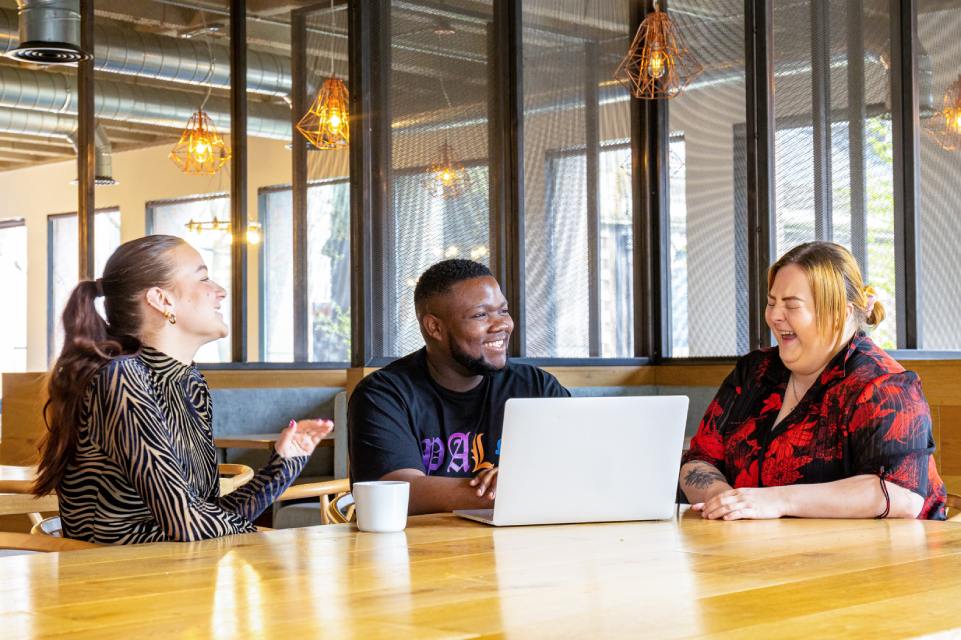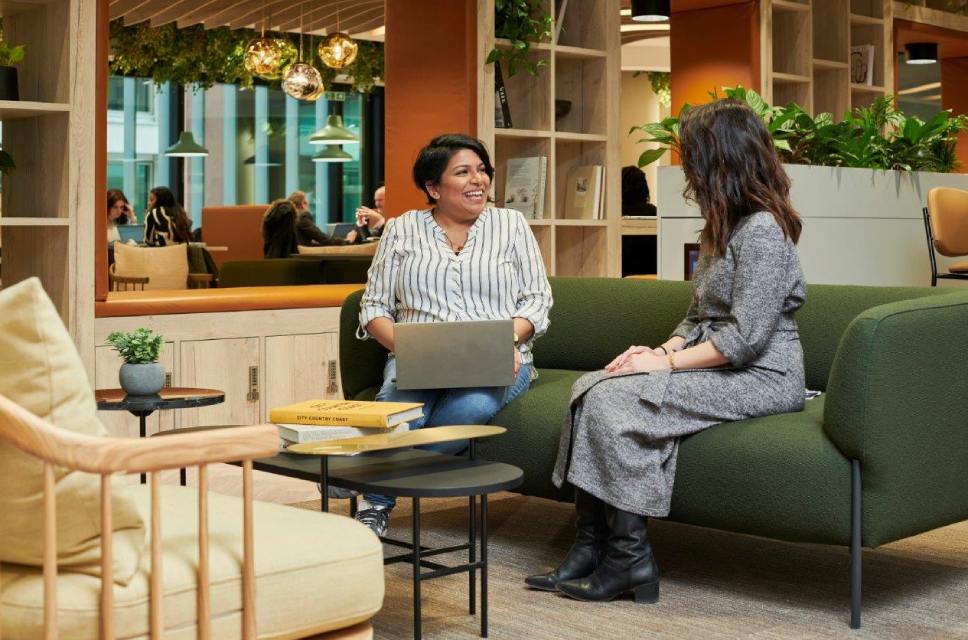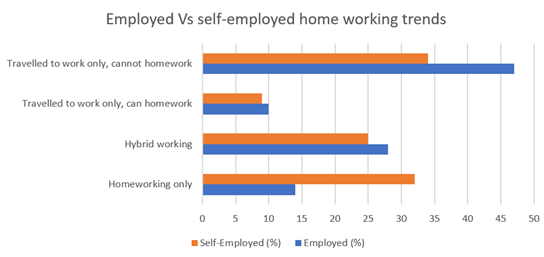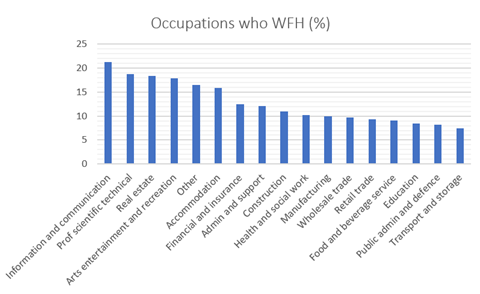The volume of self-employed workers in the UK has risen by over a million in two decades; from 3.3 million in 2001 to over 5 million in 2019, before declining during the pandemic to 4.3 million in 2022, according to Landmark Space’s latest research on working trends. It predicts these figures are on the rise again and due to reach pre-pandemic levels by 2025, by which self-employed will comprise over 15% of the entire workforce. With nearly one in three (32%) self-employed workers only working from home, reporting no office-working days at all, compared with 14% of employees, the negative risks to well-being and career networking can be higher. This equates to over 1.6 million people at risk of loneliness by 2025…
In its wider analysis of ONS data, Landmark Space found that over 30% of homeworkers – those working either some or all of the working week from home – felt lonely either often or always, citing a lack of social interaction as a common challenge. A lack of separation between work and personal life has also recently been identified as an issue in an Institute of Employment Studies and Mental Health at Work survey.

Landmark Space’s co-working spaces foster inclusivity and creativity, often useful tools for entrepreneurs and self-employed. They work with a national mental health charity to help employees and tenants.
Homeworkers are in real risk of loneliness and disengagement
Ed Cowell, CEO of Landmark Space, a business that has worked closely with prominent mental health and wellbeing charities to raise money, says, “Most commercial property data points towards a permanent shift to hybrid office attendance patterns nationally. This has meant that over the past three years around 10-20 million square feet of traditional leased office space has declined, driven by seismic shifts to remote working models. With the shift acutely pronounced in major cities like London, other working models need to be looked at as options to mitigate the rising risk to work isolation, disengagement, and loneliness.”
Research by Capital Economics suggests the total office stock in the UK may shrink by 13% or 60 million sq ft by 2025 due to hybrid working trends. Landmark Space’s Working Trends analysis suggests the role of co-working hubs will become increasingly important for continuing professional and social connections during this time.
Cowell continues, “How can businesses retain productivity and proactivity in their team culture with fully remote working patterns on the rise? Businesses come to us saying they’re facing this dilemma, and find that coworking hubs are the solution to fostering greater engagement and team spirit. These spaces become a base to host in person meetings, especially effective for high-value activities like strategy sessions and collaborative work. The nature of coworking hubs, being surrounded by likeminded businesses, means they also facilitate networking, flexibility, and creativity – essential components to Britian’s working future in a remote world.”
Professions most at risk of loneliness
Landmark Space’s analysis cites the profession most likely to work remotely is in the information and communication sector. In 2022, 56% of workers in the information and communication sector reported they worked remotely, a sector which accounts for 21% of all home-workers. This was the highest of any industry sector. In 2012, only 15% of workers in this sector worked from home, marking an astonishing 269% increase.
This was followed by professional, scientific, and technical industries where 42% are working remotely, or 19% of the overall volume of home-workers. The significant ten-year increase at 222% is in part explained by the boom in this sector from entrepreneurs and technological innovation, in activities such as computer programming, research and graphic design.
The finance and insurance sector also saw a noticeable 436% climb in remote working in a decade, likely attributed to rise of online banking, decline of the high street, and other hybrid models reliant on technology.
Let’s look at homeworking trends
Landmark Space’s working trends analysis also identifies the top business sectors that appear to be giving up office space at higher rates. Technology is one of the largest UK growth sectors, in which many tech companies are actively reducing their physical office footprints. This follows as major tech firms such as X (Twitter) and Amazon have recently announced subletting or not renewing office leases; a likely signal that smaller-sized businesses are following suit. This reflects the 222% increase in remote working only across the professional, scientific, and technical sectors.
Consulting and professional services are also top of the list for embracing remote models. KPMG and Deloitte have publicly stated they are giving up office space. This is line with broadcasters and large publishers, with big names in media like the BBC, Conde Nast, and Buzzfeed having all reported condensing office footprints. This is further evidenced by the 269% increase in home working in the information and communication sector across ten years.
London is the most prevalent city for remote working. In London, four in 10 workers (40%) reported hybrid working according to Landmark Space’s analysis – higher than in any other English region.
Landmark Space currently operates 41 buildings across seven UK cities. 33 of their offices are in prime London locations, all of which have a seen a 10% to 25% jump in the number of self-employed or one-man businesses acquiring memberships to use their coworking space in the last two years.
One of these business founders is Liza Griffen, CEO and co-founder of boutique EA and PA recruitment consultancy Taylor Griffen. Liza and her business partner, Claire, began working from Cavendish Square, one of Landmark Space’s offices in the heart of the West End and they have never looked back.
Liza said: “I went from working five days a week in the office pre-covid, to fully working from home during lockdown. I found working from home really isolating and I also hugely struggled to motivate myself – it’s very easy to get distracted at home. So, founding Tyler Griffen during the pandemic, Claire and I both agreed we needed an office to work from. We both now use Landmark Space’s coworking area five days a week and the benefits of being in a flexible workspace have totally exceeded our expectations.
“There is such a lovely mix of tenants who we see regularly, and I frequently work next to other small business owners like me. This has provided such great opportunities to network with likeminded people, bounce ideas off each other and ask for advice from people who are in a similar situation to us. There is a certain camaraderie of all being in it together. Through chatting to people in the kitchen or across the desk, I have also found new business opportunities, which really goes to show the value of these co-working spaces.
Liza continues: “Without a doubt, using a Landmark Space coworking office has been the best decision we have made for our small business. Not only does the space really feel like our own, but I am far more motivated being in the office and certainly feel less closed off. I have some friends who are starting their own businesses next year who would thrive in these flexible work hubs, too.”
Liza and Claire are two examples of how beneficial a coworking space can be for those who would otherwise be working in isolation at home. Coworking spaces, like those offered by Landmark Space, can provide solutions through facilitating collaboration, networking, and a sense of community. As major companies downsize office space across sectors like tech and media, the demand for flexible workspaces is likely to grow.
“London is leading the charge in hybrid working arrangements,” Cowell concludes, “Tomorrow’s successful flexible workspace providers will not only need to anticipate the needs of businesses and their clients, and provide top quality facilities, amenities, and tech, but will also cater to the emotional needs of the workspace users to retain their presence and productivity. These community-minded dynamics will play a critical role in employee wellbeing and business retention, as we look ahead to next year.”
You can find more information on Landmark Space’s offices here.

















